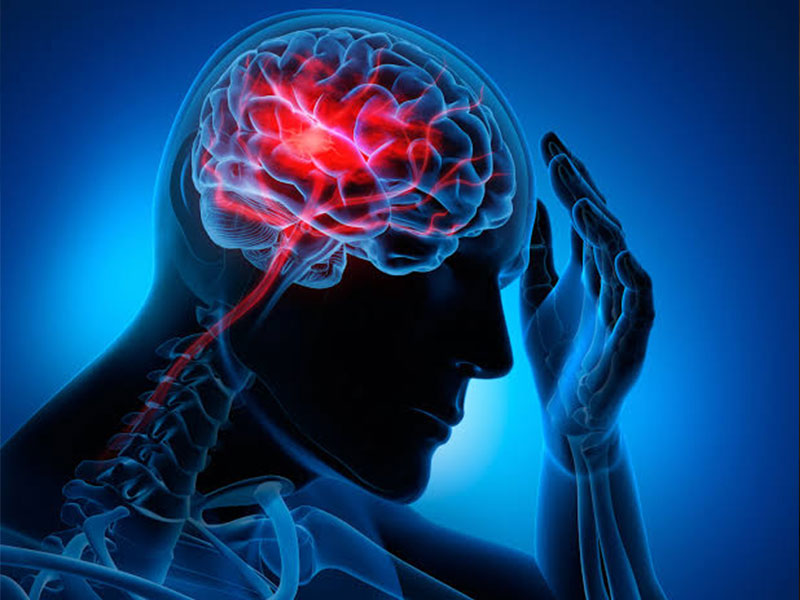
When the blood supply to a part of your brain is interrupted or reduced, brain tissue is deprived of oxygen and nutrients, resulting in a stroke, with the brain cells beginning to die within minutes. It causes a medical emergency that requires immediate attention to help avoid brain damage and other complications. Onlymyhealth editorial team talked to Dr. Kumar Swamy. E, Consultant - Emergency Medicine, Fortis Hospitals, Bannerghatta Road, Bangalore, about the risk factors of a stroke and things that one should keep in mind.
Table of Content:-
What are the associated risk factors of stroke?
Some risk factors for stroke are uncontrollable. Gender, age, and family history are among them. Many stroke risk factors, on the other hand, are lifestyle-related. By making a few simple lifestyle changes, anyone can lower their risk of having a stroke. The following are lifestyle-related factors that increase your risk of stroke:
1. High blood pressure
.jpg)
The most significant risk factor causing a stroke. Hypertension is when the blood exerts more pressure than is healthy or normal, weakening and damaging blood vessel walls over time, increasing the risk of stroke (cerebral hemorrhage) or might lead to thickening of artery walls, narrowing the vessel, and eventually blocking it (ischaemic stroke).
2. Diabetes
Makes it twice as likely as someone of the same gender and age with no diabetes to have a stroke due to high blood sugar levels contributing to the development of atherosclerosis. Diabetes must be kept under control at all times.
3. Atherosclerosis
A chronic inflammatory disease of the hardening of artery walls, a leading cause of strokes. It causes arteries to stiffen, become inflexible, and narrow due to cholesterol-laden 'plaque' deposits, destabilizing the artery's lining and forming blood clots (atherothrombosis) that can either block the artery or break off and travel downstream in the bloodstream, with an eventual embolism.
Also read: World Stroke Day 2021: 3 Types Of Stroke And Symptoms You Must Be Aware Of
4. High cholesterol levels
High cholesterol levels contribute to the formation of atheroma, a substance that adheres to artery walls and causes atherosclerosis (narrowing and hardening of the arteries).
5. Obesity

Obesity also increases risk of a stroke. High-fat diet (especially saturated fat) and salt, but low in fiber, fruit, and vegetables might raise blood pressure and cholesterol levels, leading to heart disease and type 2 diabetes. If you're having trouble staying within recommended weight ranges, seek advice from a doctor or dietitian.
6. Lack of exercise
Obesity, high blood pressure, and high blood cholesterol levels are all linked to a sedentary lifestyle and are significant stroke risk factors.
7. Alcohol
People who drink heavily, regardless of age, are three times more likely to have a stroke (especially a hemorrhagic stroke), making it critical to keep alcohol consumption under control.
Also read: World Stroke Day 2021: 7 Myths And Facts About Stroke You May Not Know
8. Illegal drugs
Abuse of intravenous (IV) drugs heightens stroke risks due to blood clots (cerebral embolisms). Cocaine and other drugs have been linked to heart attacks, strokes, and a variety of other cardiovascular problems.
Ischemic stroke is more likely in people who have Atrial fibrillation, a type of irregular heartbeat. This is due to inefficient atria pumping, allowing blood to stagnate and clot, parts of which may break off and travel through the bloodstream to the brain, where they block an artery, resulting in a stroke.
Things to keep in mind about stroke:
- Stroke risk is increased by certain lifestyle factors.
- People can lower their risk of having a stroke by maintaining a healthy lifestyle.
- To understand the overall probabilities of stroke, risk factors should be considered together.
- Some possible factors for stroke, such as gender, age, and family history, are uncontrollable.
- A person who has already had a stroke is ten times more likely to have another one.
Also watch this video
How we keep this article up to date:
We work with experts and keep a close eye on the latest in health and wellness. Whenever there is a new research or helpful information, we update our articles with accurate and useful advice.
Current Version
